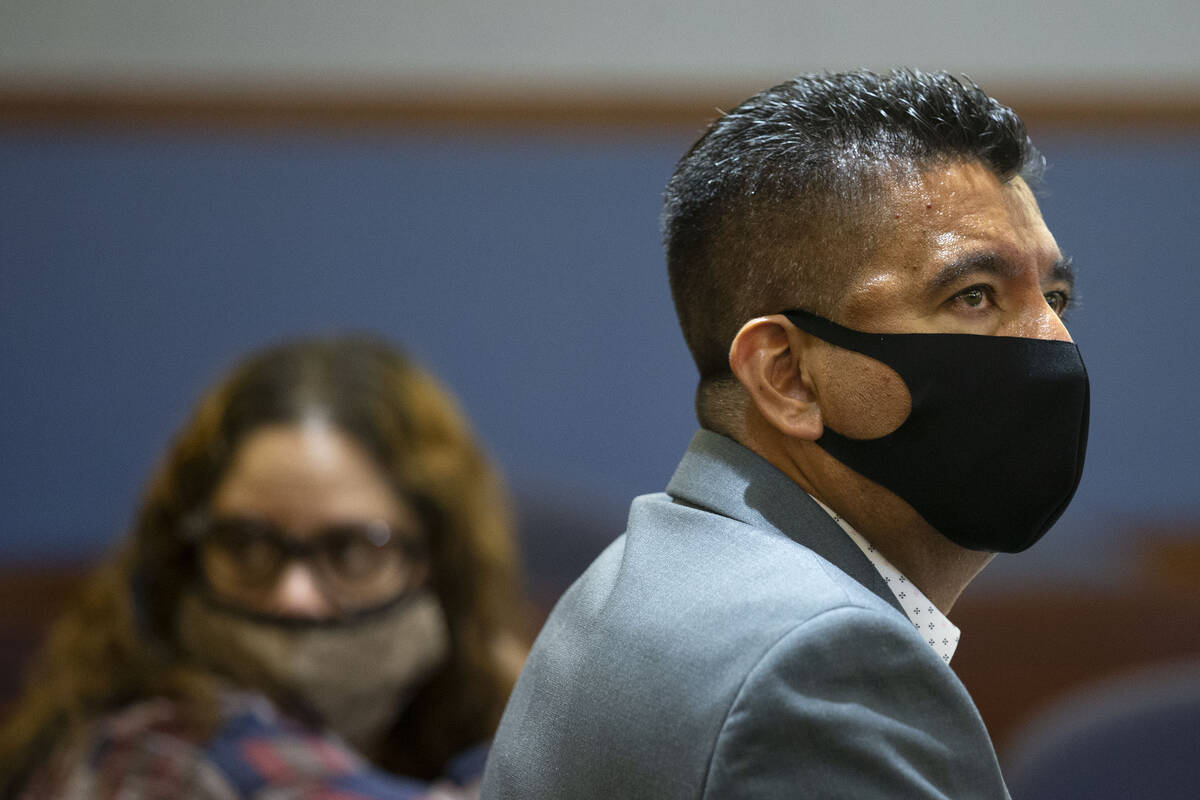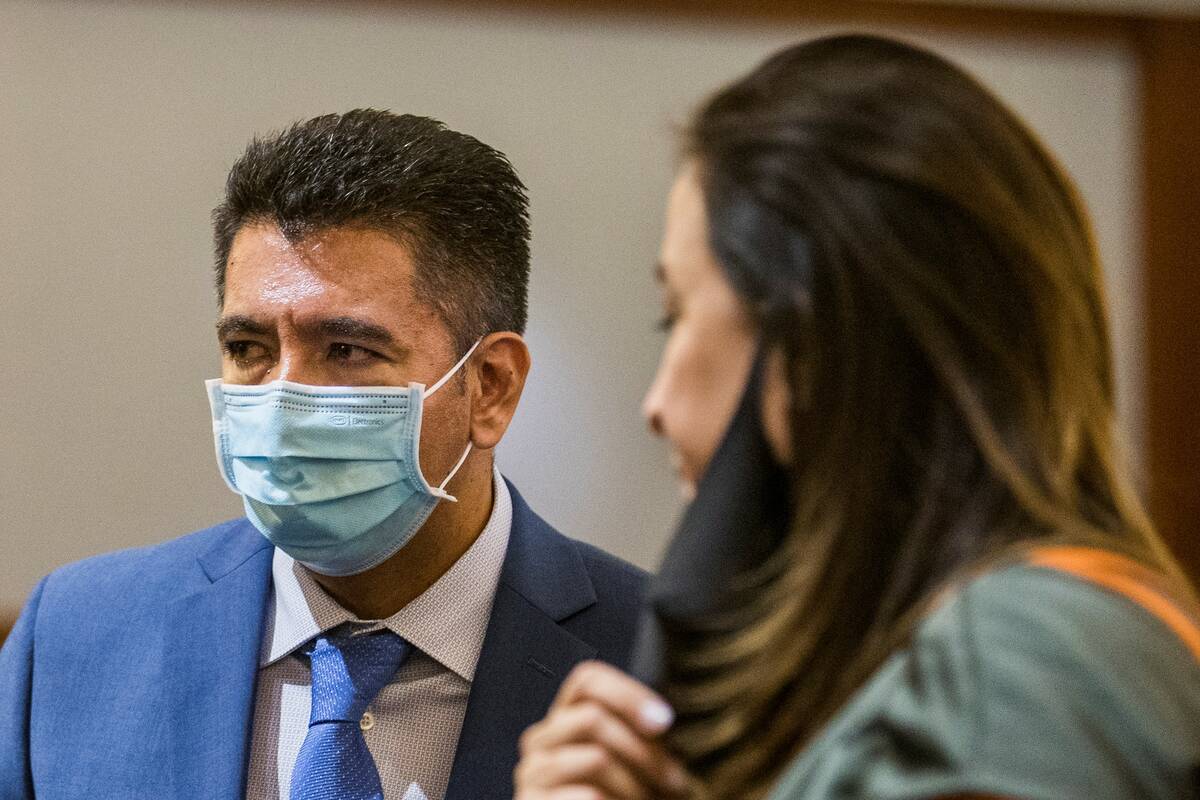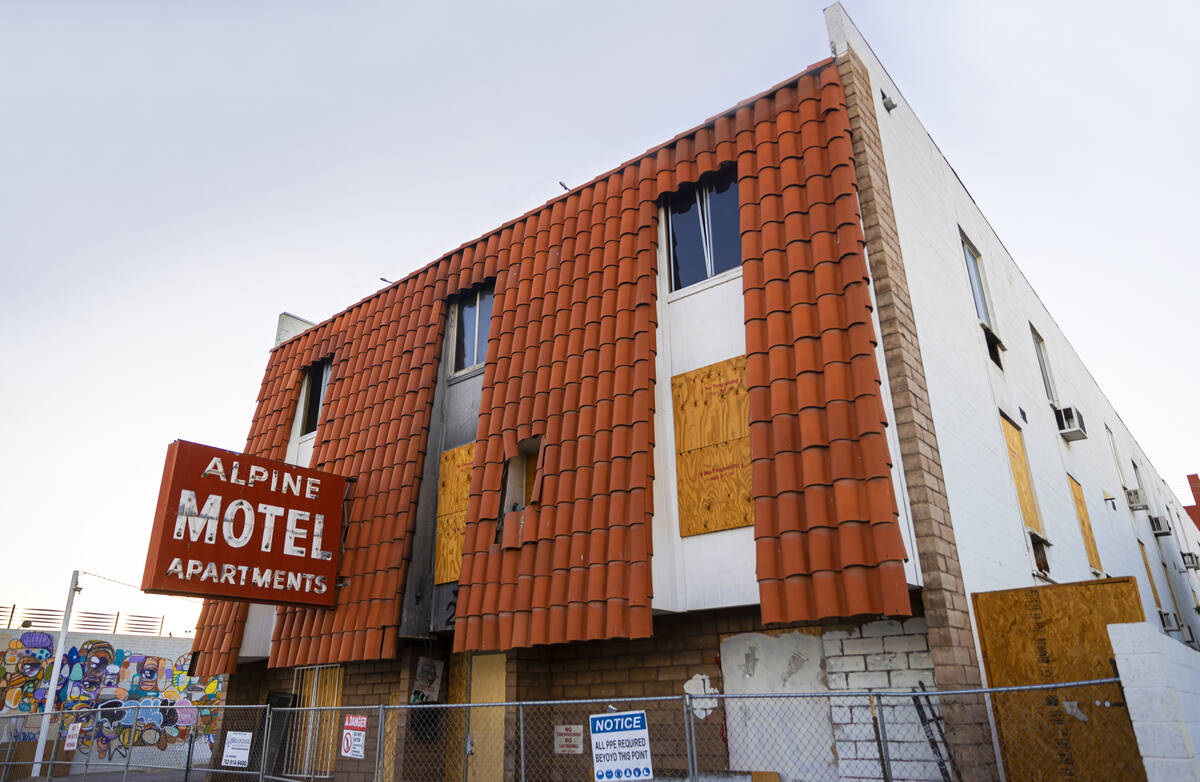Former Alpine Motel owner sues city, others over deadly fire
The former owner of the Alpine Motel Apartments filed a lawsuit this week against multiple people allegedly involved in the deadliest residential fire in Las Vegas city history — including the resident who was living in the room where the fire started.
“This lawsuit is directed at those who are more directly responsible due to their own contractual breaches and tortious conduct that resulted in the same injuries,” lawyers for the Alpine’s former owner, Adolfo Orozco, wrote in the complaint filed Tuesday.
Orozco and his company, Las Vegas Dragon Hotel LLC, filed the suit against the city of Las Vegas; the companies that monitored the building’s fire alarms; the building’s live-in manager, Jason Casteel; and the man who lived in the unit where the fire started on a stovetop, Corey Evans. Orozco and former Alpine manager Malinda Mier each face six criminal charges of involuntary manslaughter, with multiple other felony charges, stemming from the fire.
The Alpine caught fire before dawn on Dec. 21, 2019. Investigators later determined the blaze originated from an unattended stovetop in Evans’ apartment. While the exact cause of the fire remains unknown, it was ruled accidental.
Six people died in the fire: Kerry Baclaan, 46; Henry Lawrence Pinc, 70; Cynthia Mikell, 61; Donald Keith Bennett, 63; Tracy Ann Cihal, 57; and Francis Lombardo Jr., 72.
Orozco has since sold nearly all of what was once a multimillion-dollar portfolio that he, his wife and their four companies owned at the time of the fire. Henderson resident John Burnette’s company, DLUX Investments, with Las Vegas-based Apogee Capital Holdings and Ambleside Properties in Canada, paid $1.9 million in August to purchase the Alpine and its adjacent parking lot.
Accusations against ex-tenants
The lawsuit cast partial blame for the fire on Evans for not telling Alpine management that his heater wasn’t working.
Once Evans got off work in the early hours of Dec. 21, 2019, he turned on his oven, opened its door and clicked on at least one electric burner. He later told police he had been turning on the appliances to stay warm, according to documents previously released to the Review-Journal.
That morning, Evans briefly left the apartment to go to a convenience store with his friend, leaving his stove on. Once he returned to the Alpine, he found a “commotion,” with people “hollering about smoke,” he told police.
Evans later said he could not remember if he left anything on the stove that could have caught fire.
However, Orozco’s lawsuit said that Evans “knew or reasonably should have known that he had highly flammable materials on or in close proximity to the stove and/or oven at the time he left Unit 108.”
A lawyer for Evans was not listed in court documents as of Wednesday afternoon.
The lawsuit also said Casteel failed to deliver new heating units to multiple apartments and instructed residents to use their stoves or ovens as heaters, “unbeknownst to Plaintiffs.”
Less than a month before the blaze, the fire alarm was pulled at the Alpine in a “prank,” and Casteel helped to disable the alarm, the lawsuit said. Casteel did not properly reset the system “to allow for it to function properly in the event of a fire in the future,” Orozco’s lawyers, Edward Boyack, Christopher Anthony and Dominic Gentile, wrote in the lawsuit.
At the time of the fire, the building, constructed in 1972, had gone almost three years without a city fire inspection. In the fire’s aftermath, investigators cited more than 40 fire code violations, including the sealed rear exit and a faulty fire alarm system.
Records released in September 2020 suggested someone manually silenced the alarm system weeks before the tragedy.
The suit also said Casteel was instructed to repair the rear door of the Alpine, which was blocked during the fire. Casteel bolted the door shut before the fire and “failed to notify Plaintiffs that he had done so,” the lawsuit said.
Similar accusations about Casteel ordering the door to be bolted shut were made in a February 2020 court filing by Gentile in Orozco’s criminal case.
But Casteel testified last year that he communicated with Orozco repeatedly about repairing the doors. Text messages from October 2019 showed that Casteel texted Orozco photos of doors and cost estimates. Casteel said he did not have authority to make purchases on his own.
The suit also said that Casteel placed refrigerators in the building’s first-floor hallway instead of Orozco’s office “as he had been instructed.” Mikell died after her path was blocked in that hallway by refrigerators and a vending machine.
Reached by phone Wednesday, Casteel said he was not aware of the lawsuit and declined to comment until he could review it.
Orozco’s lawyers did not respond to requests for comment.
Malfunctioning fire alarm
According to the lawsuit, Nevada company EDS Electronics Inc. monitored the building’s fire alarm system with the help of California-based National Monitoring Center.
After the fire alarm was triggered on Nov. 28, 2019, the companies received a signal indicating the system was malfunctioning every 24 hours, up until the fire.
Orozco said EDS did not notify him of the malfunctioning alarm. But the company’s manager, Erin Stevens, testified in August 2020 that the company was unable to reach Orozco.
Only after the fire, Stevens testified, did EDS realize that buttons had been pressed that had incapacitated the alarm system.
On Nov. 28, 2019, EDS notified the Las Vegas Fire Department that the system was malfunctioning, the suit said.
The lawsuit said the city never investigated the signal or contacted Orozco after the Fire department was notified.
A city spokesman declined to comment on Wednesday. The fire alarm monitoring companies did not respond to requests for comment.
Contact Katelyn Newberg at knewberg@reviewjournal.com or 702-383-0240. Follow @k_newberg on Twitter.




















